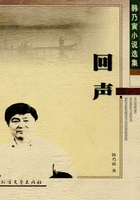My Old Friends--Pacienza--Agatha--Count Boryomeo--The Ball --Lord Percy The Corticelli was as gentle as a lamb, and left me as we got into Turin. I promised I would come and see her, and immediately went to the house the Chevalier had taken, which I found convenient in every way.
The worthy Chevalier was not long in calling on me. He gave me an account of the moneys he had spent on the Corticelli, and handed over the rest to me.
"I am flush of money," I said, "and I intend to invite my friends to supper frequently. Can you lay your hands on a good cook?"
"I know a pearl amongst cooks," said he, "and you can have him directly."
"You, chevalier, are the pearl of men. Get me this wonder, tell him I am hard to please, and agree on the sum I am to pay him per month."
The cook, who was an excellent one, came the same evening.
"It would be a good idea," said Raiberti, "to call on the Count d'Aglie. He knows that the Corticelli is your mistress, and he has given a formal order to Madame Pacienza, the lady with whom she lives, that when you come and see her you are not to be left alone together."
This order amused me, and as I did not care about the Corticelli it did not trouble me in the least, though Raiberti, who thought I
was in love with her, seemed to pity me.
"Since she has been here," he said, "her conduct has been irreproachable."
"I am glad to hear that."
"You might let her take some lessons from the dancing-master Dupre," said he. "He will no doubt give her something to do at the carnival."
I promised to follow his advice, and I then paid a visit to the superintendent of police.
He received me well, complimented me on my return to Turin, and then added with a smile:--
"I warn you that I have been informed that you keep a mistress, and that I have given strict orders to the respectable woman with whom she lives not to leave her alone with you."
"I am glad to hear it," I replied, "and the more as I fear her mother is not a person of very rigid morals. I advised the Chevalier Raiberti of my intentions with regard to her, and I am glad to see that he has carried them out so well. I hope the girl will shew herself worthy of your protection."
"Do you think of staying here throughout the carnival?"
"Yes, if your excellency approves."
"It depends entirely on your good conduct."
"A few peccadilloes excepted, my conduct is always above reproach."
"There are some peccadilloes we do not tolerate here. Have you seen the Chevalier Osorio?"
"I think of calling on him to-day or to-morrow."
"I hope you will remember me to him."
He rang his bell, bowed, and the audience was over.
The Chevalier Osorio received me at his office, and gave me a most gracious reception. After I had given him an account of my visit to the superintendent, he asked me, with a smile, if I felt inclined to submit with docility to not seeing my mistress in *******.
"Certainly," said I, "for I am not in love with her."
Osorio looked at me slyly, and observed, "Somehow I don't think your indifference will be very pleasing to the virtuous duenna."
I understood what he meant, but personally I was delighted not to be able to see the Corticelli save in the presence of a female dragon. It would make people talk, and I loved a little scandal, and felt curious to see what would happen.
When I returned to my house I found the Genoese Passano, a bad poet and worse painter, to whom I had intended to give the part of a Rosicrucian, because there was something in his appearance which inspired, if not respect, at least awe and a certain feeling of fear. In point of fact, this was only a natural presentiment that the man must be either a clever rogue or a morose and sullen scholar.
I made him sup with me and gave him a room on the third floor, telling him not to leave it without my permission. At supper I
found him insipid in conversation, drunken, ignorant, and ill disposed, and I already repented of having taken him under my protection; but the thing was done.
The next day, feeling curious to see how the Corticelli was lodged, I called on her, taking with me a piece of Lyons silk.
I found her and her mother in the landlady's room, and as I came in the latter said that she was delighted to see me and that she hoped I would often dine with them. I thanked her briefly and spoke to the girl coolly enough.
"Shew me your room," said I. She took me there in her mother's company. "Here is something to make you a winter dress," said I, skewing her the silk.
"Is this from the marchioness?"
"No, it is from me"
"But where are the three dresses she said she would give me?"
"You know very well on what conditions you were to have them, so let us say no more about it."
She unfolded the silk which she liked very much, but she said she must have some trimmings. The Pacienza offered her services, and said she would send for a dressmaker who lived close by. I
acquiesced with a nod, and as soon as she had left the room the Signora Laura said she was very sorry only to be able to receive me in the presence of the landlady.
"I should have thought," said I, "that a virtuous person like you would have been delighted."
"I thank God for it every morning and night."
"You infernal old hypocrite!" said I, looking contemptuously at her.
"Upon my word, anybody who didn't know you would be taken in."
In a few minutes Victorine and another girl came in with their band-boxes.
"Are you still at Madame R----'s" said I.
"Yes sir," said she, with a blush.
When the Corticelli had chosen what she wanted I told Victorine to present my compliments to her mistress, and tell her that I would call and pay for the articles.
The landlady had also sent for a dressmaker, and while the Corticelli was being measured, she shewed me her figure and said she wanted a corset. I jested on the pregnancy with which she threatened me, and of which there was now no trace, pitying Count N---- for being deprived of the joys of fatherhood. I then gave her what money she required and took my leave. She escorted me to the door, and asked me if she should have the pleasure of seeing me again before long.















